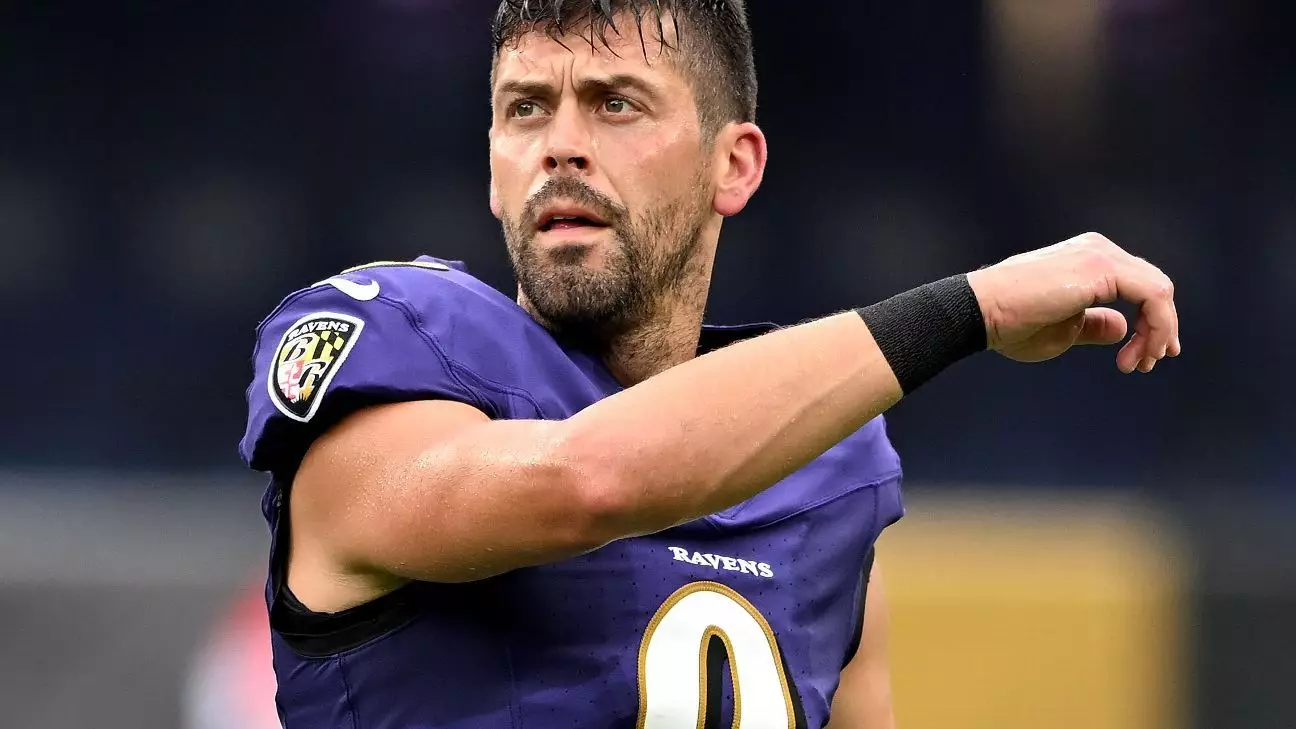Former Baltimore Ravens kicker Justin Tucker, once celebrated as the most precise kicker in NFL history, now faces a suspension that casts a long shadow over his legacy. The NFL’s decision to suspend Tucker for the first 10 weeks of the 2025 regular season, following allegations of sexual misconduct spanning several years, forces us to critically examine the culture within professional sports and the mechanisms of accountability—or lack thereof. The suspension stems from claims made by 16 massage therapists tied to luxury wellness centers in Baltimore, accusing Tucker of egregious misconduct between 2012 and 2016. It’s a grievous situation that exposes the darker side of an ostensibly glamorous NFL life.
Justice Delayed, Justice Denied?
There is a glaring irony in the timeline of these allegations. The misconduct is said to have taken place over half a decade ago, and yet only now has Tucker been publicly reprimanded, after a lengthy investigation and amidst growing public pressure. The NFL’s personal conduct policy suspension, a disciplinary tool often criticized for inconsistency, appears here as a half-measure—too long in coming, and arguably too lenient given the gravity of the accusations. While supporters of Tucker hail his presumption of innocence and point to a lack of legal proceedings, the voices of those affected demand more than silence or brief sidelining. One massage therapist’s poignant assertion that Tucker’s 10-week suspension pales in comparison to the lifelong repercussions they endure echoes a broader failure to center victims’ welfare in league responses.
The NFL’s Predicament: Balancing Talent and Accountability
Justin Tucker was not just any player; he was the embodiment of reliability for the Ravens—a seven-time Pro Bowler and the last remaining member of their 2012 Super Bowl-winning squad. His fall from grace, culminating in the Ravens terminating his contract despite its lucrative terms, underscores the tension NFL teams face between athletic excellence and moral responsibility. Yet this case also highlights the NFL’s perennial struggle: it often appears reactive rather than proactive in addressing player misconduct. The league’s delayed response suggests a reluctant acknowledgment of its own complicity in prioritizing game-day performance over fostering a culture of respect and safety off the field.
The Missing Apology and Its Consequences
An insightful critique comes from the attorneys representing the massage therapists, who lament Tucker’s refusal to apologize or accept responsibility. This stubborn denial arguably intensified the trauma experienced by the alleged victims, transforming the aftermath into a prolonged conflict rather than an opportunity for genuine accountability and healing. In an era when public figures are increasingly expected to leverage their platforms for positive change, Tucker’s stance strikes as dangerously tone-deaf. His agent’s statement, which frames the suspension as a resolution to “put the episode behind him,” comes off as an attempt to minimize the serious allegations rather than confront them meaningfully.
Broader Implications for the NFL and Society
This case highlights the urgent need for the NFL to overhaul its approach to personal conduct violations, ensuring swifter, more transparent, and victim-centered processes. The league must break from its pattern of punitive half-measures that neither fully protect victims nor decisively address athlete misconduct. There is also a deeper societal conversation at stake: how do we reconcile admiration for athletic prowess with a strict reckoning of the personal behaviors of sports figures? Blind allegiance to star athletes not only risks enabling harmful behavior but also alienates fans who expect integrity from their sports heroes.
In balancing the scales of justice, the NFL—and by extension, its audiences—must recognize that protecting the dignity of all individuals, especially those vulnerable to abuse, is non-negotiable. Athletic talent should never grant immunity from accountability, and cases like Justin Tucker’s should serve as a painful but necessary catalyst pushing the league toward genuine reform.


Leave a Reply